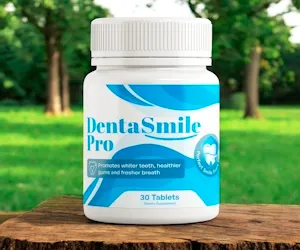Not only does having healthy teeth and gums look good, but it’s also important for your general health. Not taking care of your teeth and gums properly can cause cavities and gum disease, but it can also make health problems like diabetes and heart disease worse. Luckily, if you stick to a few habits every day, they can help you keep your teeth healthy. We’ll talk about the best habits and routines that will help you keep your smile and mouth healthy for life.
The Basics Of Oral Health
It helps to know a little about your teeth and gums in order to take better care of them. Teeth are made up of layers, such as enamel (the hard top layer), dentin (the layer below the enamel), and pulp (the layer with nerves and blood vessels). The gums hold your teeth in place and keep the roots safe.
Plaque is a layer of germs that sticks to your teeth. If you don’t brush your teeth regularly, it turns into tartar, which causes gum disease (gingivitis). If you don’t fix it, this can turn into periodontal disease, which hurts the bone that keeps your teeth in place and can cause you to lose teeth.
Daily Habits That Promote Healthy Teeth And Gums
Brushing Techniques And Frequency
To take care of your teeth, you should brush them twice a day, in the morning and at night. Fluoride toothpaste and a toothbrush with soft bristles are good for you. Hold your toothbrush 45 degrees away from your gums and move it around in a gentle circle. It should take at least two minutes to brush your teeth. Every three to four months, or sooner if the bristles are worn, you should get a new toothbrush. Remember to brush your tongue because it can hold germs that cause a bad smell.
- Brush your teeth at least twice a day.
- Use toothpaste with fluoride.
- Do not brush right after eating something sour. Hang on for 30 minutes.
Flossing: The Often-ignored Essential
It’s important to floss once a day to get rid of plaque and food stuck between your teeth that your toothbrush can’t reach. Wrap about 18 inches of dental floss around each middle finger, leaving about 2 inches extra to work with. Slide it slowly between your teeth, move it up and down, and curve it around the base of each tooth. For people with braces, toothpicks or water flossers can work just as well.
- Every day, floss.
- Be gentle so you don’t hurt your gums.
- For ease, think about floss picks or water flossers.
Mouthwash And Rinsing
You should still brush and floss your teeth, but mouthwash is a good option. Mouthwashes with germs help get rid of plaque and gingivitis and rinses with fluoride help strengthen teeth and stop cavities. If your mouth is dry or your tissues are easily hurt, stay away from mouthwashes with alcohol.
- Use after you floss and brush.
- Pick a mouthwash based on what you need.
- After you rinse, don’t eat or drink for 30 minutes.
Nutrition And Oral Health
The food you eat has a big effect on the health of your teeth. Tooth enamel gets stronger when you eat foods that are high in calcium and phosphorus, like dairy and leafy greens. Apples and carrots, which are crunchy, make you salivate more, which helps clean your mouth. Sugary snacks, acidic drinks (like soda and citrus juices), and eating too often can damage your teeth’ enamel and cause cavities.
Lifestyle Choices That Affect Oral Health
Your mouth health can be affected by things you do every day besides brushing and cleaning. Tobacco use and smoking stain teeth, weaken gums and greatly raise the risk of getting mouth cancer. Also, alcohol can dry out your mouth and make cavities more likely.
Stress can make you grind your teeth, which is known as bruxism. This can wear down the enamel on your teeth and cause jaw pain. Mouth breathing, especially while you sleep, can make your mouth dry, which can lead to more germs growing in your mouth and bad breath.
- Stop smoking and drink less booze.
- If you grind your teeth, you should wear a mouthguard.
- Breathing through your nose will help keep your mouth moist.
Regular Dental Visits
You can’t get rid of tartar all by yourself, even with the best home care. That’s why it’s important to have a professional clean your home every six months. Dentists also do checks to find problems like cavities or mouth cancer early, when they are easiest to fix. If you’re scared of going to the dentist, let them know that many of them offer ways to calm you down or drugs.
- Visit your dentist twice a year.
- Get X-rays as recommended.
- Address any discomfort or anxiety early.
Special Considerations For Different Life Stages
Kids need to be helped to brush and floss their teeth until they can do it well on their own. Small amounts of fluoride toothpaste should be used.
When teens have braces or spacers, they may need extra care. Tell them to stay away from sugary drinks and always brush their teeth.
Some medicines adults and seniors take can cause dry mouth, or gums may recede. To stop tooth loss, it’s important to see the dentist regularly.
- Make care unique for each age group.
- Early protection is important.
- Keep an eye on habits and change them as needed.
Conclusion
When you take regular, well-informed care of your teeth and gums, they stay healthy. You can keep your smile healthy and beautiful for years to come by brushing and flossing properly, eating well, giving up bad habits, and going to the dentist regularly. Making these habits a part of your daily life will help your mouth health in the long run.
FAQs
1. How Often Should I Brush My Teeth?
Every day, twice, once in the morning and once before bed.
2. Is Flossing Really Necessary?
Yes, flossing gets rid of plaque and food that your toothbrush can’t reach.
3. What Foods Are Bad For My Teeth?
Sticky sweets, sugary snacks, and drinks that are acidic are especially bad for you.
4. How Often Should I Visit The Dentist?
For cleanings and check-ups at least twice a year.
5. Can Poor Oral Hygiene Affect My Overall Health?
In fact, it is connected to health problems like diabetes, heart disease, and lung infections.

Gas S. is a health writer who covers metabolic health, longevity science, and functional physiology. He breaks down research into clear, usable takeaways for long-term health and recovery. His work focuses on how the body works, progress tracking, and changes you can stick with. Every article is reviewed independently for accuracy and readability.
- Medical Disclaimer: This content is for education only. It doesn’t diagnose, treat, or replace medical care from a licensed professional. Read our full Medical Disclaimer here.



